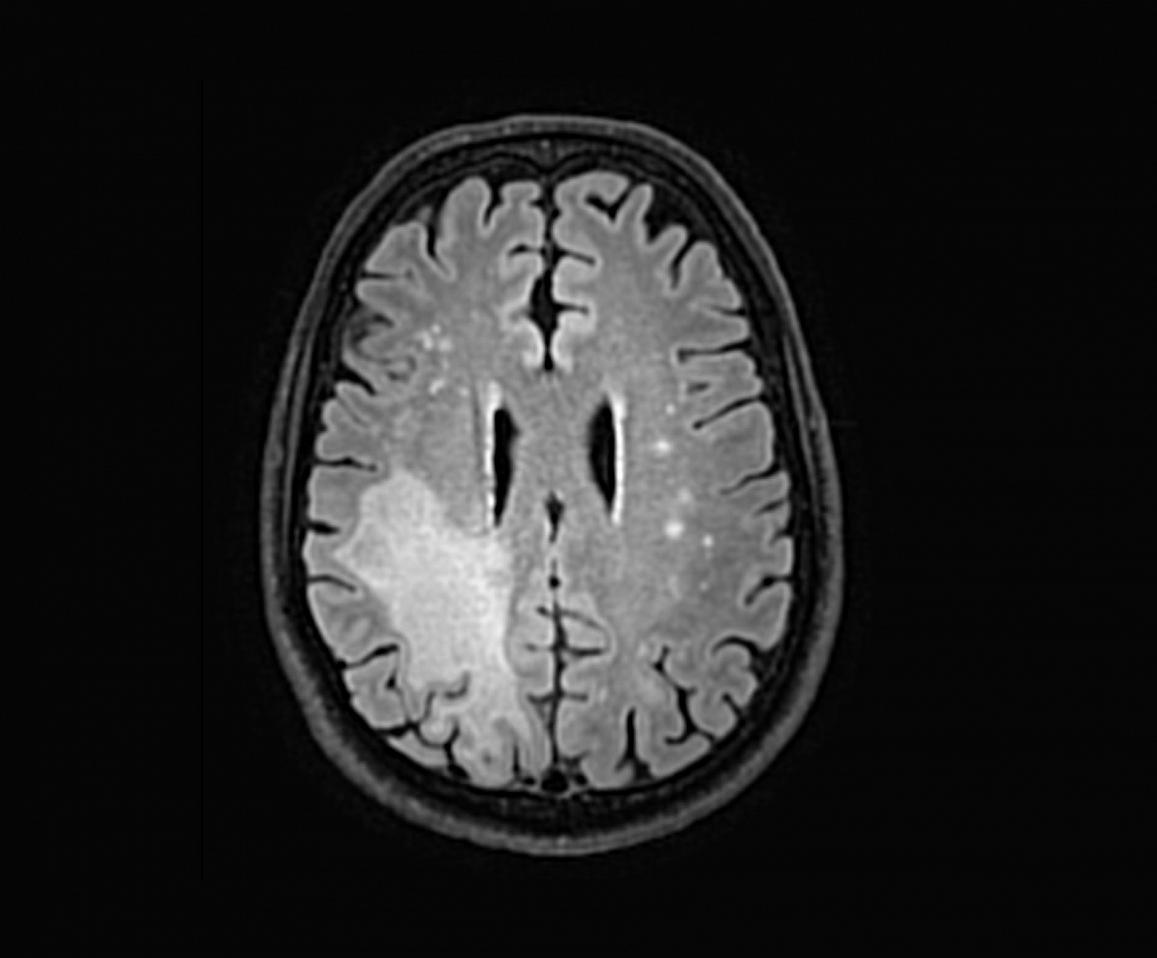Releasing an immune system brake could help patients with rare but fatal brain infection
Small-scale, NIH-led clinical study offers early hope for developing a treatment
The anti-cancer drug pembrolizumab has shown promise in slowing or stopping the progression of progressive multifocal leukoencephalopathy (PML), a typically fatal infection of the brain caused by the JC virus (JCV). This finding comes from a small-scale study by scientists at National Institute of Neurological Disorders and Stroke (NINDS), part of the National Institutes of Health. The study appears in the New England Journal of Medicine.
Pembrolizumab blocks the interaction between two proteins, PD-1 and PD-L1. Normally, these proteins work by putting the brakes on the immune system to limit excessive inflammation. However, some tumors that have PD-L1 on their surface can exploit this “off switch,” limiting the immune system’s ability to attack the cancer. Recent studies of PML patients have suggested that this mechanism may also be involved in JCV brain infections.
“We found both PD-1 and PD-L1 proteins in the infected parts of brains of patients with PML,” said Irene Cortese, M.D., director of the NINDS Neuroimmunology Clinic and first author of the paper. “This led us to ask whether pembrolizumab could be a potential treatment for PML.”
This page was last updated on Friday, January 21, 2022
